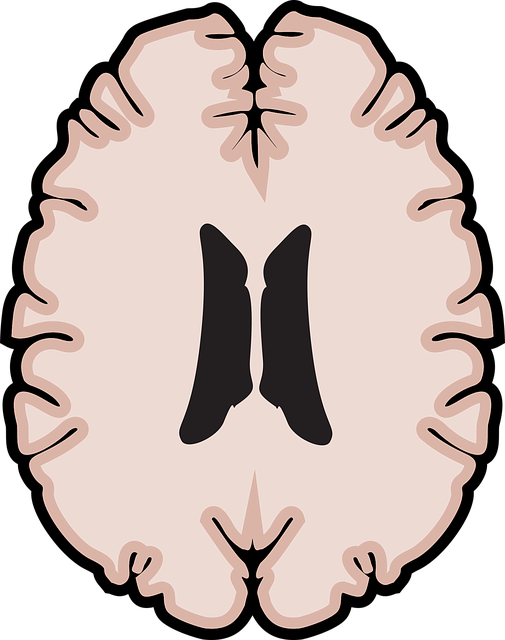Understanding Mental Health Data is vital for effective care at Parker Chronic Pain Therapy (PCPT), focusing on pain intensity, duration, and impact on daily life. Advanced analytics techniques like machine learning and natural language processing revolutionize data analysis, uncovering hidden patterns to identify specific factors contributing to chronic pain and mental health comorbidities. A balanced approach combining quantitative and qualitative methods provides deep insights into patient experiences, guiding tailored treatment planning and developing effective Mental Wellness Coaching Programs. Ethical considerations, including privacy protection and fairness, are paramount as AI evolves, with a focus on enhancing cultural sensitivity in healthcare provider training and addressing broader mental wellness concerns.
Mental health data analysis is a burgeoning field, offering profound insights into human experiences. This article explores the intricacies of understanding, interpreting, and leveraging mental health data through advanced analytics techniques. We delve into the collection and preparation of this sensitive information, discuss cutting-edge analytics methods for deep insights, and highlight practical applications in Parker Chronic Pain Therapy. Additionally, we address ethical considerations and chart future directions in this transformative domain.
- Understanding Mental Health Data: Collection and Preparation
- Advanced Analytics Techniques for Deep Insights
- Interpreting Results: Applications in Parker Chronic Pain Therapy
- Ethical Considerations and Future Directions in Mental Health Data Analysis
Understanding Mental Health Data: Collection and Preparation

Understanding Mental Health Data involves a meticulous process of data collection and preparation, which is a cornerstone in effective mental health care. This begins with gathering comprehensive information from various sources such as patient records, surveys, and clinical assessments. In the context of Parker Chronic Pain Therapy, for instance, healthcare providers need to collect data on pain intensity, duration, and its impact on daily functioning. This includes details about coping mechanisms, medication adherence, and psychological well-being.
Preparation entails cleaning and organizing the data to ensure accuracy and consistency. It involves handling missing values, identifying outliers, and categorizing information for seamless analysis. Incorporating strategies like Burnout Prevention for Healthcare Providers can help in maintaining a holistic view of patient mental health. By fostering Self-Care Practices among caregiving professionals, they can better support patients, thereby enhancing data quality and interpretation.
Advanced Analytics Techniques for Deep Insights

Advanced analytics techniques are transforming mental health data analysis, enabling professionals to gain deep insights into patient experiences and outcomes. By leveraging sophisticated methods such as machine learning algorithms and natural language processing, healthcare providers at Parker Chronic Pain Therapy can uncover hidden patterns and trends within vast datasets. This allows for a more nuanced understanding of patient journeys, identifying specific factors contributing to chronic pain and mental health co-morbidities.
For instance, these techniques can analyze textual data from patient surveys and clinical notes, providing valuable insights into the impact of cultural sensitivity in mental healthcare practice. By detecting subtle linguistic cues, researchers can assess burnout prevention efforts and develop targeted interventions. Additionally, advanced analytics supports the creation of evidence-based Mental Wellness Coaching Programs, tailoring support to individual needs and enhancing overall treatment efficacy.
Interpreting Results: Applications in Parker Chronic Pain Therapy

When analyzing mental health data within the context of Parker Chronic Pain Therapy (PCPT), interpreting results requires a nuanced approach that integrates quantitative and qualitative insights. By delving into trends and patterns, therapists can gain valuable understandings of individual patient experiences and progress. This involves examining not only traditional metrics like symptom severity but also exploring self-care practices, coping mechanisms, and the impact of support systems—all crucial elements for effective PCPT.
The applications of this data-driven perspective extend beyond diagnosis to tailored treatment planning. Mental wellness coaching programs development, incorporating insights from data analysis, can empower individuals to manage pain chronically. By fostering self-care practices and burnout prevention strategies, therapists guided by these analyses enable patients to achieve greater mental resilience, enhancing their overall well-being and quality of life.
Ethical Considerations and Future Directions in Mental Health Data Analysis

As mental health data analysis advances with technologies like artificial intelligence and machine learning, ethical considerations become increasingly vital. Ensuring data privacy and confidentiality is paramount, especially when dealing with sensitive information related to individuals’ psychological states and chronic pain conditions, such as those managed by Parker Chronic Pain Therapy. Researchers and healthcare providers must adhere to strict protocols to safeguard patient identities and prevent unauthorized access or misuse of data.
Future directions in this field should focus on integrating ethical frameworks into data analysis practices, enhancing transparency, and promoting fairness and accountability. The development of Mental Wellness Coaching Programs can benefit from these insights, as coaches can leverage data-driven strategies while upholding ethical standards. Additionally, Healthcare Provider Cultural Competency Training can be enhanced by utilizing analyzed data to improve cultural sensitivity in mental health care. This inclusive approach aims to address not only prominent issues like depression prevention but also a broader range of mental wellness concerns.
Mental health data analysis has evolved into a powerful tool, offering deep insights that can significantly impact treatment strategies. From understanding complex datasets to employing advanced analytics, this process enables professionals to make informed decisions in areas like Parker Chronic Pain Therapy. As we navigate the ethical landscape and consider future directions, leveraging data effectively holds the key to enhancing patient outcomes and personalizing care, ensuring a brighter, more hopeful path forward for mental health support.












